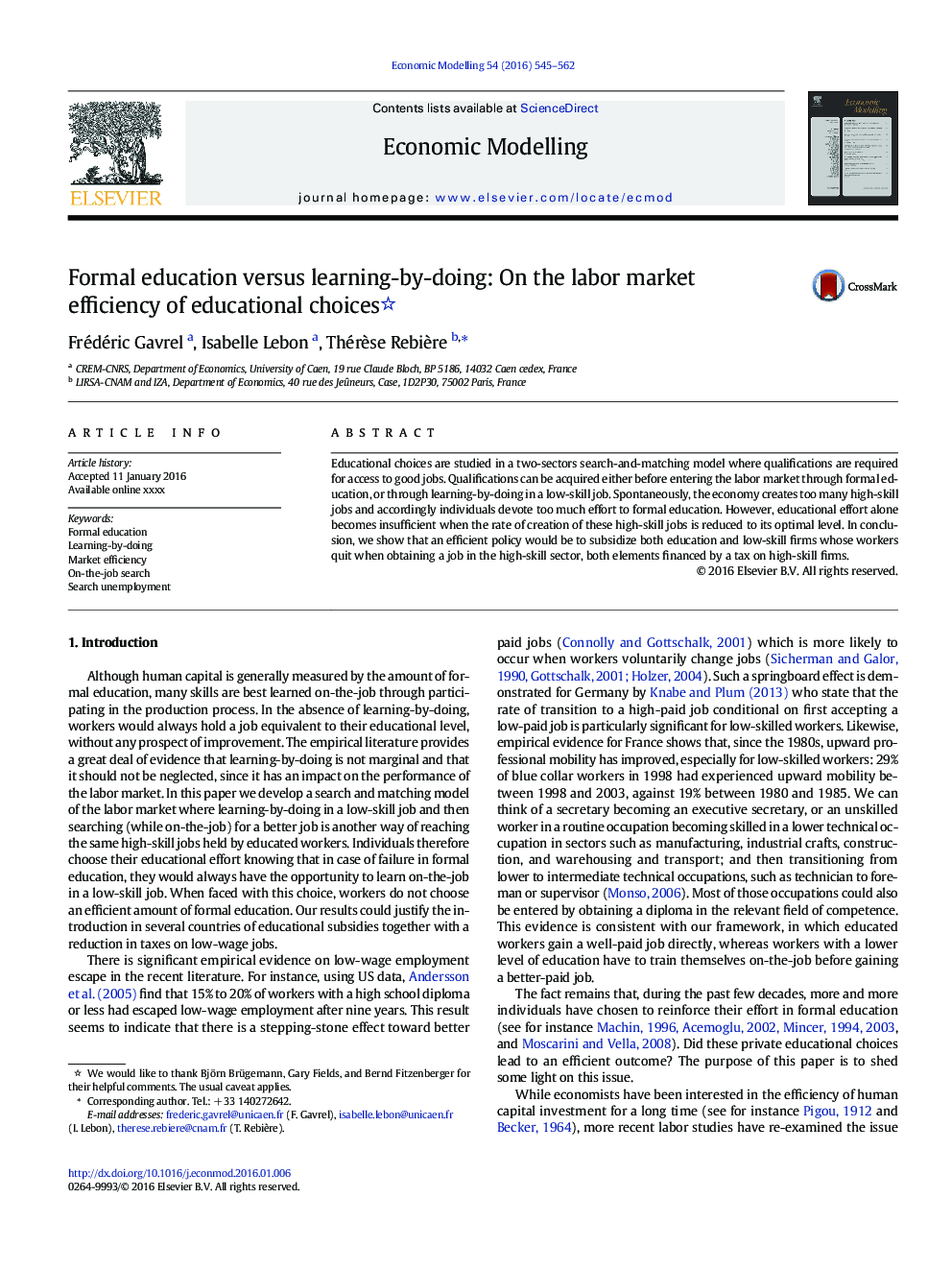| Article ID | Journal | Published Year | Pages | File Type |
|---|---|---|---|---|
| 5053414 | Economic Modelling | 2016 | 18 Pages |
Abstract
Educational choices are studied in a two-sectors search-and-matching model where qualifications are required for access to good jobs. Qualifications can be acquired either before entering the labor market through formal education, or through learning-by-doing in a low-skill job. Spontaneously, the economy creates too many high-skill jobs and accordingly individuals devote too much effort to formal education. However, educational effort alone becomes insufficient when the rate of creation of these high-skill jobs is reduced to its optimal level. In conclusion, we show that an efficient policy would be to subsidize both education and low-skill firms whose workers quit when obtaining a job in the high-skill sector, both elements financed by a tax on high-skill firms.
Keywords
Related Topics
Social Sciences and Humanities
Economics, Econometrics and Finance
Economics and Econometrics
Authors
Frédéric Gavrel, Isabelle Lebon, Thérèse Rebière,
